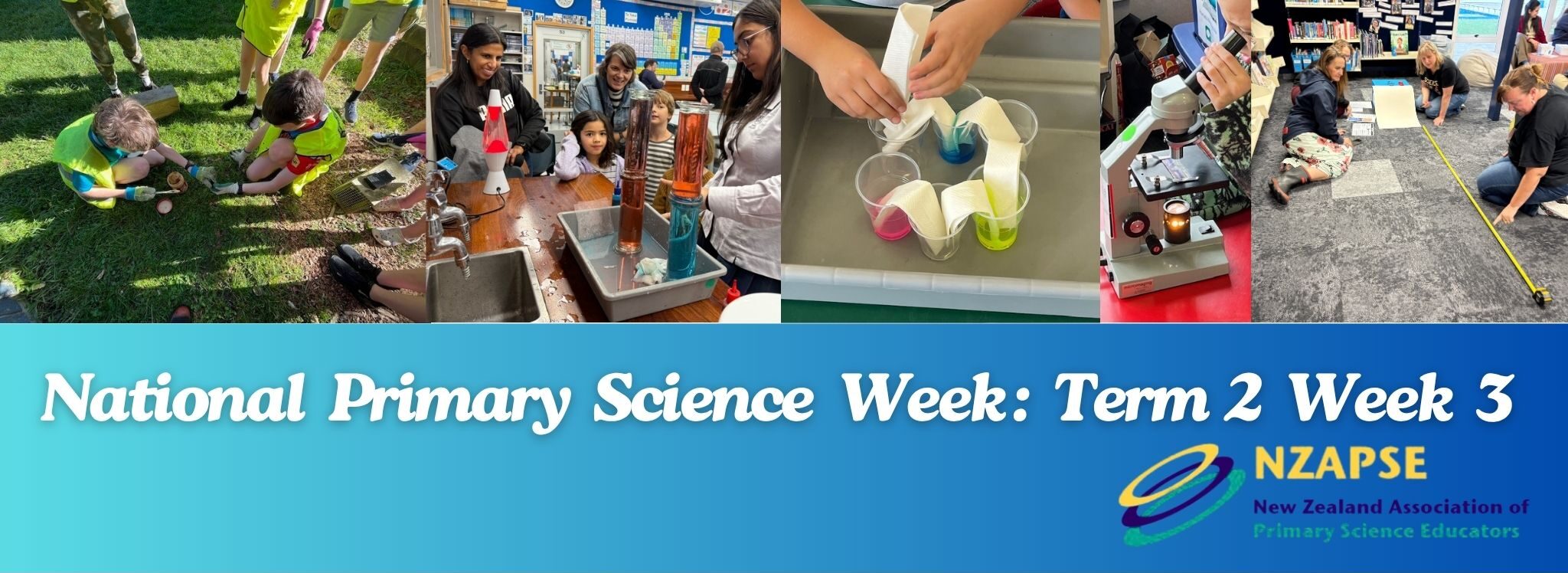Relive the highlights of Primary Science Week 2025 and get inspired for an even bigger 2026.
From PLD and competitions to ‘Ask a Scientist’ and school-wide events, discover how one community came together to create a week full of science excitement for curious young minds. Each year schools and students around Aotearoa participate in Primary Science Week which takes place in week three, term two and features a different theme. Exploration and discovery was the theme for 2025. Learn more about PSW and how to get involved in 2026.
History
The first National Primary Science Week took place in 2011 with the aim: “To support teachers of primary science and so enhance teaching and learning of science in the primary school.” It was introduced to replace the biennial conference for primary science teachers and educators, as attending an in-person event was often inaccessible for many staff and not always funded by schools. Organised by NZ Association of Primary Science Educators (NZAPSE) a group of experienced educators with real experience in the classroom and beyond and supported by science and education organisations and scientists.
In addition to national and regional professional learning and development opportunities for teachers, Primary Science Week offers a wide range of in-school activities, online events, and competitions, designed to bring science front and centre in schools.
Professional Learning and Development Opportunities
During primary science week this year PLD has been top of the agenda for many teachers and schools.
National PLD
Science Alive, in conjunction with NZASE, delivered face-to-face professional learning and development sessions across the North Island, reaching over 300 participants. South Island sessions will continue into Term 3. Teachers engaged in hands-on activities focused on the Nature of Science and developing observation skills. Activities included What’s in the Box?, Observing Properties of Powders, Car Racing, observational drawing, and more. Participants practiced asking probing questions to deepen students’ observations, encouraging critical thinking, and helping them identify the evidence behind their ideas. Science Alive also creates student facing lessons every year to support teachers with the implementation of the PSW theme. Check out this years Observation themed lessons here developed with funding by NZASE and NEX.
“It was exciting to see so many teachers participating, especially knowing how much pressure they’re under with literacy and numeracy. It’s great to see science teachers still bringing energy to science,” one facilitator noted. A participating teacher commented that science remains one of the “fun parts” of school.
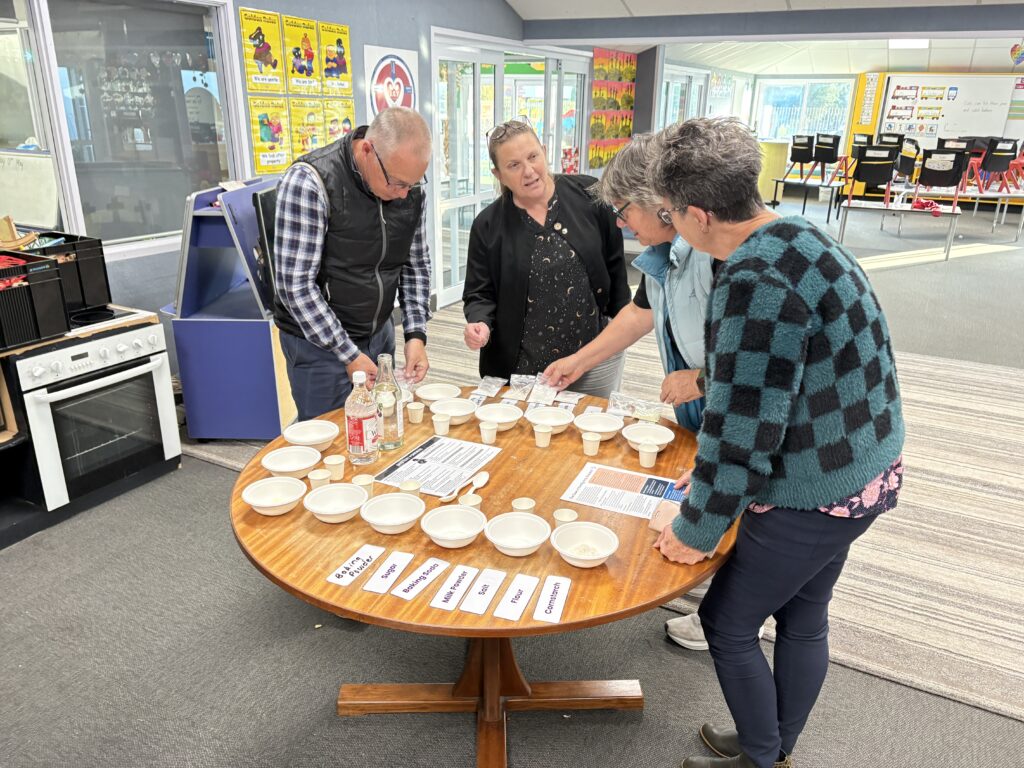
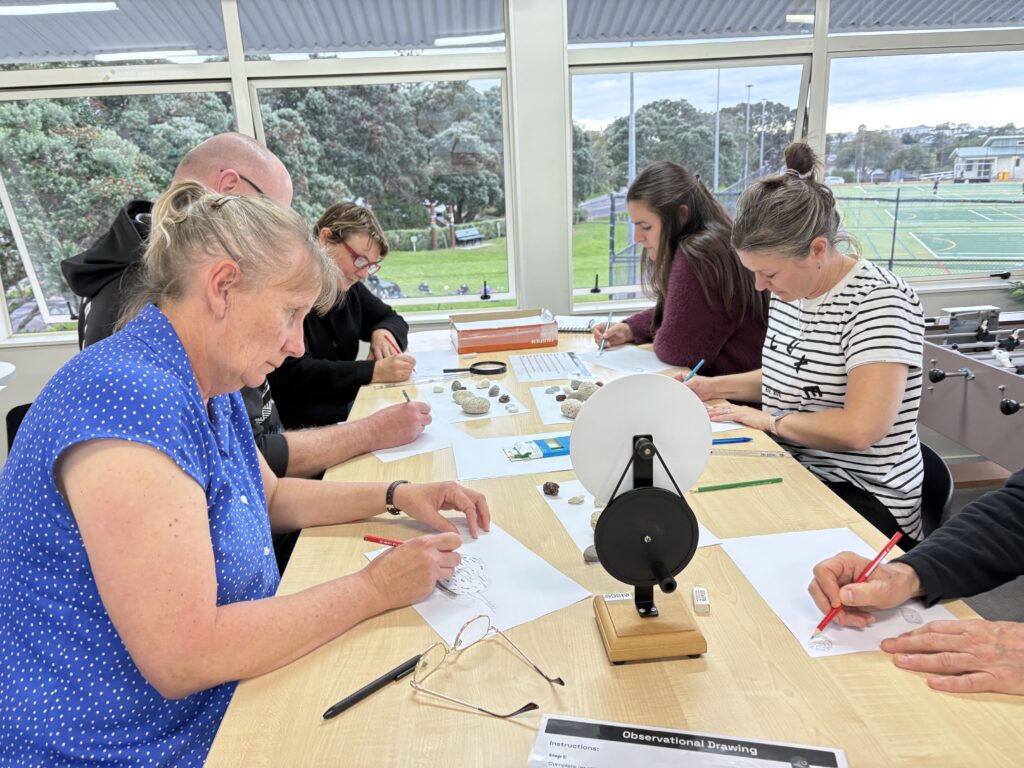
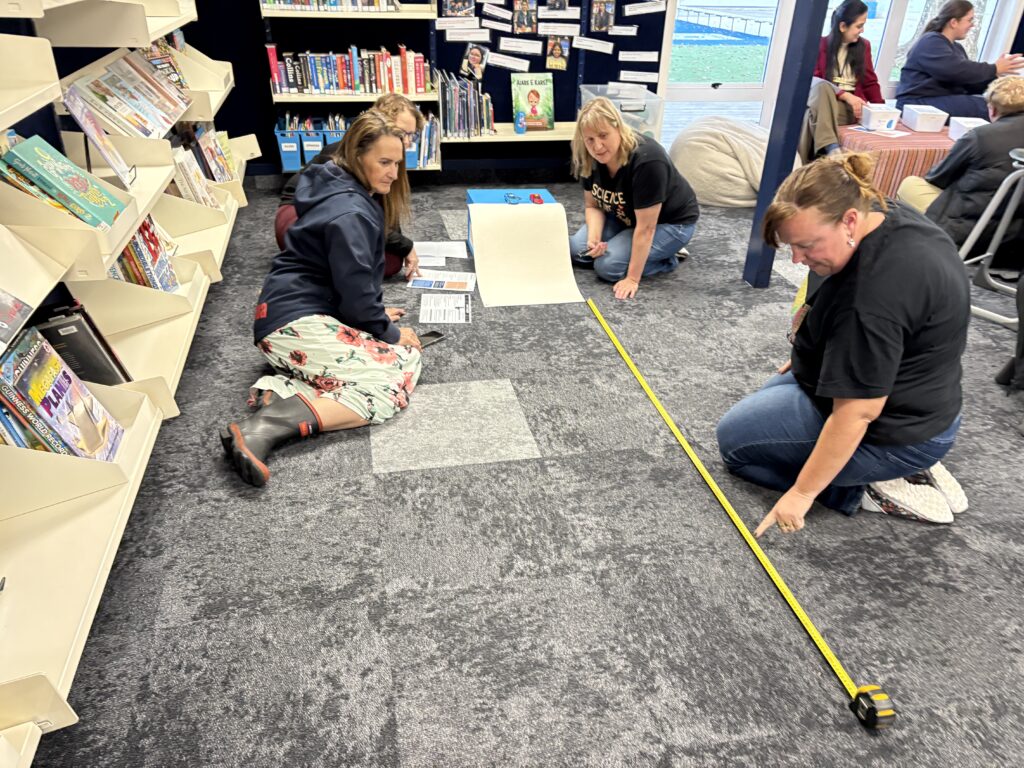
Regional PLD
The Auckland branch of the NZAPSE also hosted a practical PLD session, offering more hands-on activities and engaging experiences. Led by Sandy Jackson, the session provided teachers with fresh ideas to bring science alive in their classrooms.
Meanwhile, House of Science Rotorua Lakes, in partnership with Beyond Earth, offered a professional development session hosted at Mokoia Intermediate. John Rowe, an experienced astronomer, educator, and stargazing enthusiast, kept teachers enthralled with his deep knowledge and passion for the cosmos.
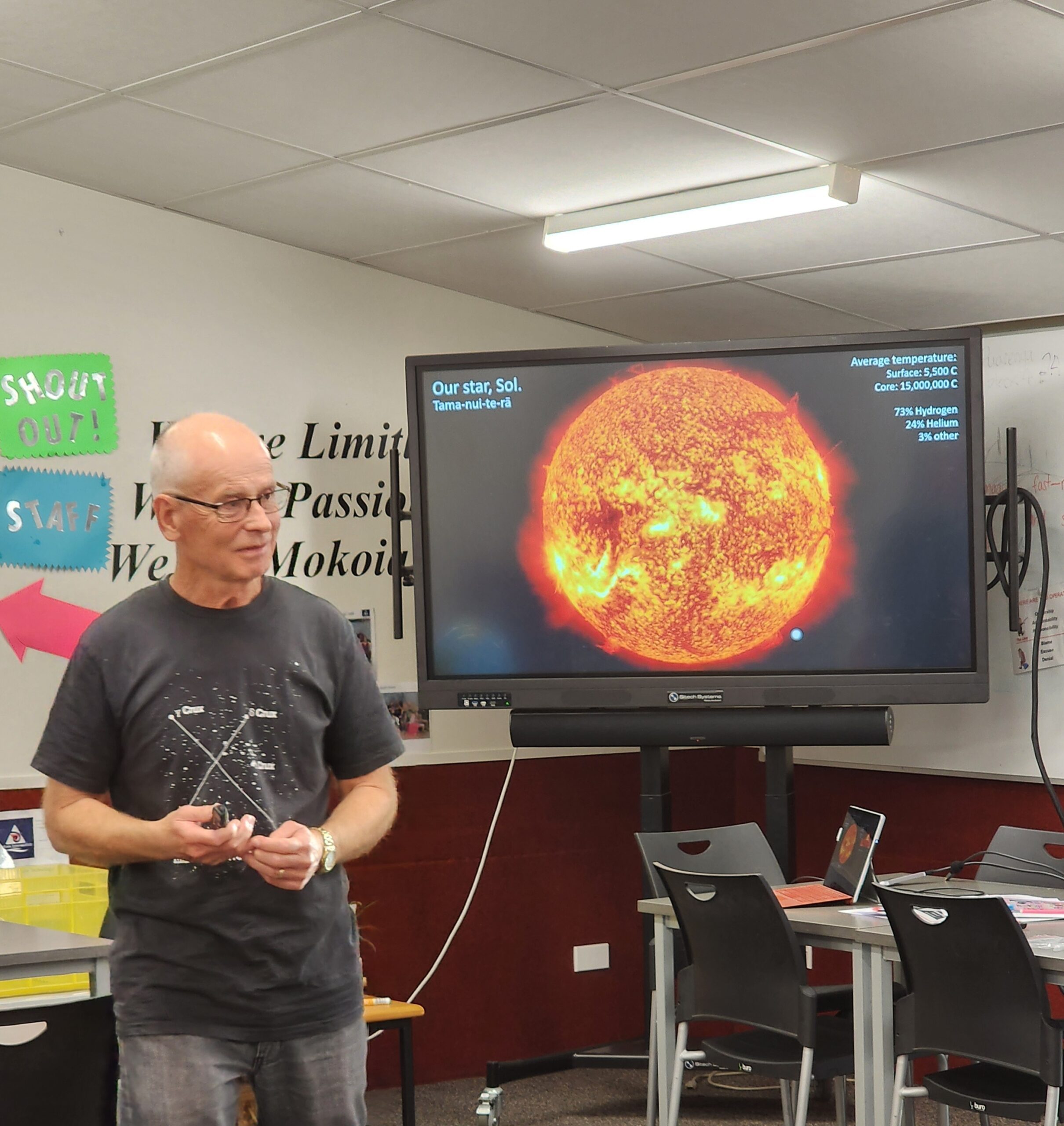
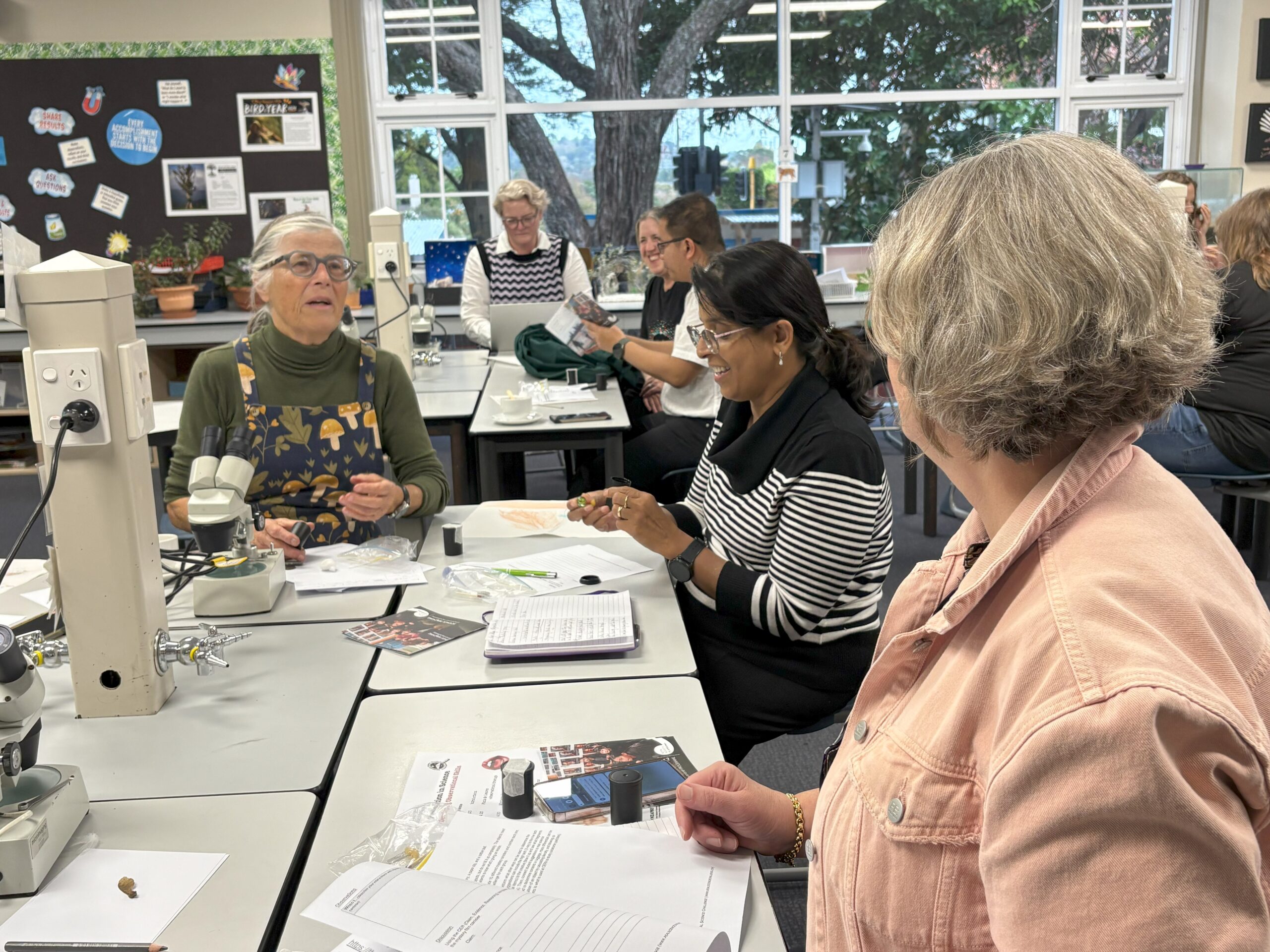
Q&A with a Scientist
A much-anticipated feature of Primary Science Week each year is the live Q&A session with a scientist, hosted by Science Alive or Science Learning Hub. These sessions give students a rare opportunity to engage directly with experts in the field, 2025 was no exception.
This year, volcanologist Ben Kennedy joined over 40 classrooms via Zoom from his office in Ōtautahi, Christchurch. Students from across Aotearoa submitted their own questions, some of which even stumped the expert!
Questions included:
“Why do volcanoes that are under the sea not fill up with water?” – Waimate Primary School
“Why did you decide to become a volcanologist?” – Kirkwood School
“What equipment do you need for going to an active volcano?” – Onehunga Primary
One particularly memorable moment came when Zahara asked a question that led Ben to share a story: he once believed he had discovered a new volcano, only to learn that the local iwi already knew about it. It was a powerful reminder of the value of indigenous knowledge and the importance of listening to local communities.
Ben’s takeaway for everyone present was simple but inspiring: “Keep exploring and keep asking questions.”
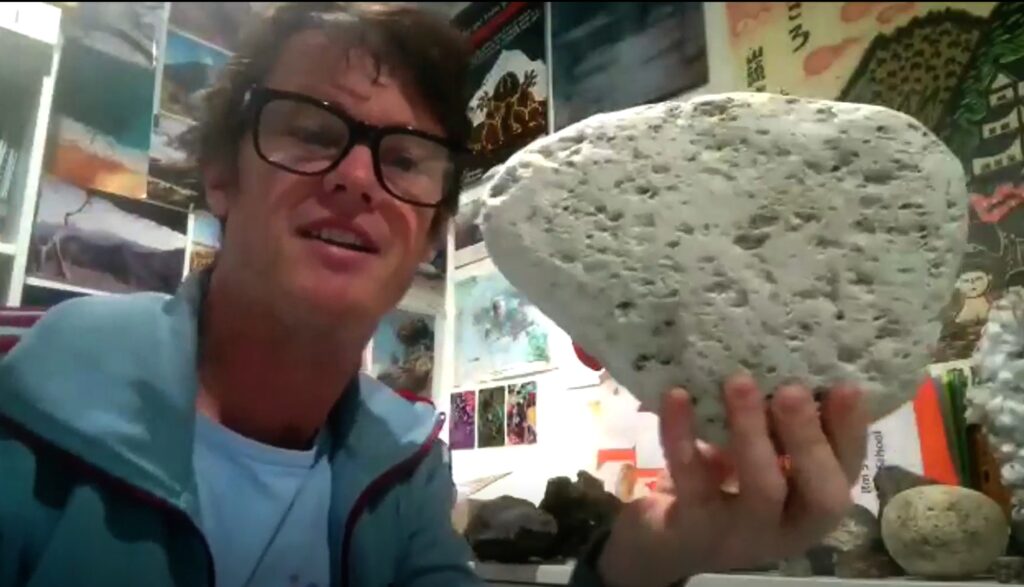
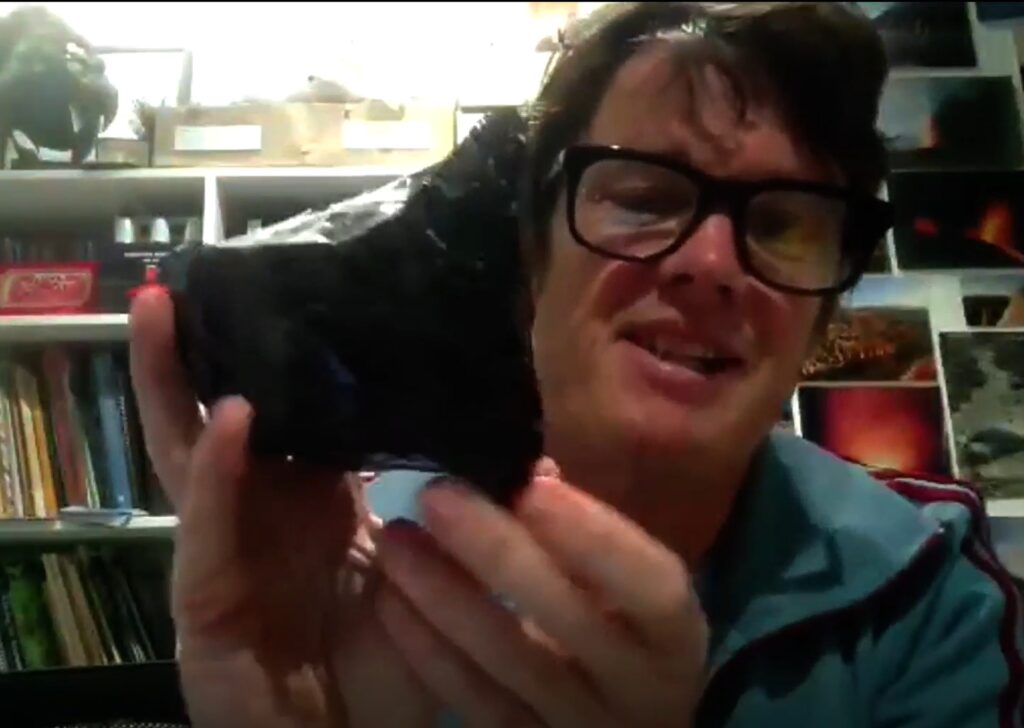
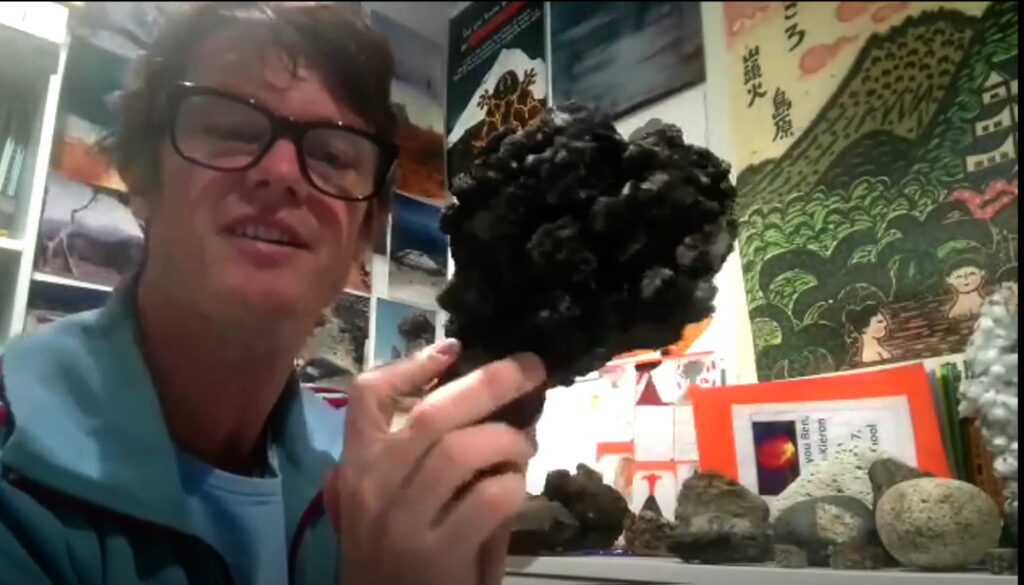
National Science Week Competition: Celebrating Discovery
Each year, NZAPSE organises a national science competition aligned with the Primary Science Week theme. The competition encourages schools and students to share their exciting science activities and learning.
With this year’s theme of exploration and discovery, participation was easy to connect to schools’ term topics. This flexibility led to a wide range of creative and curious explorations. The NZAPSE judges were impressed by the diversity of entries and found it incredibly difficult to choose winners. From small-scale investigations to big ideas, students demonstrated their discoveries of the world through a scientific lens.
Prizes included microscopes, science-themed books, and vouchers for science-related resources, generously provided by sponsors Delta Education, Learnwell, and Science Alive.
A huge thank you to all the teachers and students who took part.
If you didn’t enter this year, we hope you’ll join us next time.
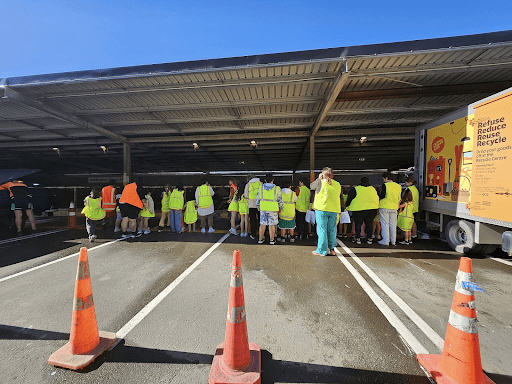
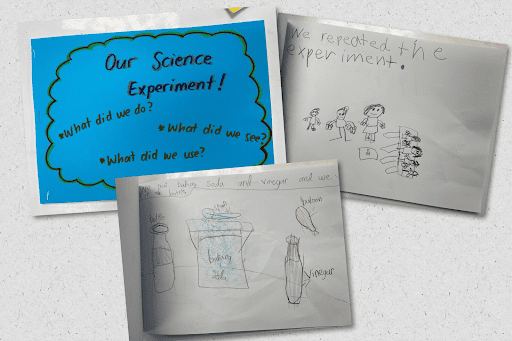
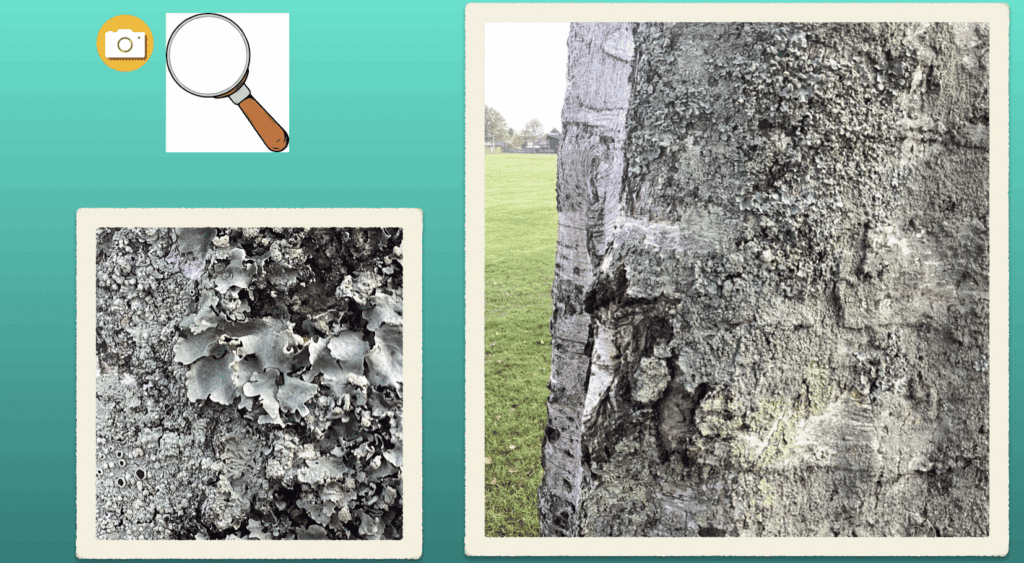
Peer-to-Peer Support and National Coordination
One unique aspect of Primary Science Week is the opportunity for teachers to share how they approach science teaching and learning in their own classrooms. Traditionally hosted as a webinar by the Science Learning Hub, the 2025 edition featured individual videos from four teachers, each showcasing their lesson ideas and teaching strategies. These videos were made available for anyone looking to explore new approaches or gain inspiration.
This initiative, along with the broader coordination of Primary Science Week, is supported by the New Zealand Association of Primary Science Educators (NZAPSE). It reflects their core mission:
“Empowering you with practical support and guidance to deliver fun and engaging science education.”
Planning Science Week: Redwood Primary School’s Discovery in Action
Primary Science Week at Redwood was a vibrant, community-wide programme that brought together students, teachers, and local experts.
Nicola Webb, the science lead at Redwood Primary, began planning towards the end of Term 1. Inspired by an article in KCC magazine on the deep sea, she developed a concept—exploring both the depths of the ocean and the vastness of outer space—to reflect this year’s Primary Science Week theme: exploration and discovery. She then assembled a small team of enthusiastic staff, including one teacher aide and two teaching staff, who brainstormed ideas for the week’s events.
During the term break, Nicola refined the details of the programme and reached out to external organisations for support. She connected with the education learning programme lead at Te Papa to explore potential collaborators. Nicola encourages teachers to be bold and reach out to local organisations, after all, the worst that can happen is they say no! She also suggests tapping into local businesses, community networks, and even science teacher Facebook groups, noting: “It is always surprising to find out who you already have in your own community.”
In the first two weeks of Term 2, staff planned science-related daytime activities across the school, culminating in a Redwood School community evening on Thursday. Nicola was thrilled when Andrew Stuart, a deep-sea fish expert from Te Papa, and Antony Gomez from the Wellington Astronomical Society agreed to participate. Antony brought telescopes, allowing students and families to observe the night sky. They were especially fortunate to have clear skies and even saw Starlink passing overhead! Both experts expressed their enthusiasm for working with primary school students, highlighting how young learners embrace curiosity without hesitation.
To cap off the event, students and families took part in a small group challenge inspired by BP Challenges, where they collaborated to build spacecraft models, a fun and engaging way for all ages to participate.
Nicola acknowledges how fortunate the school is to be located near rich educational resources but encourages other schools to start small and gradually build their capacity.
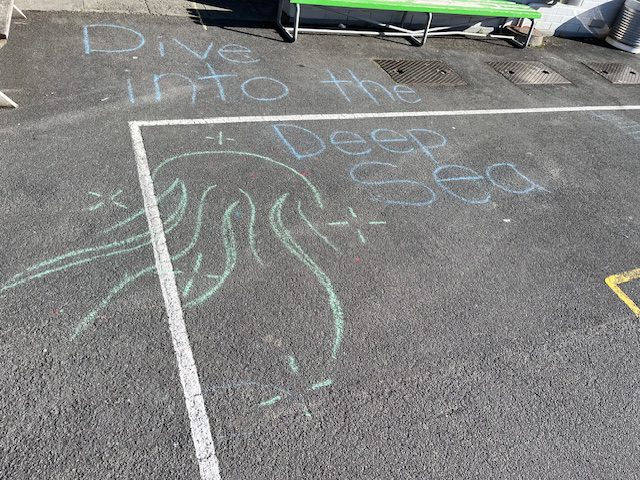
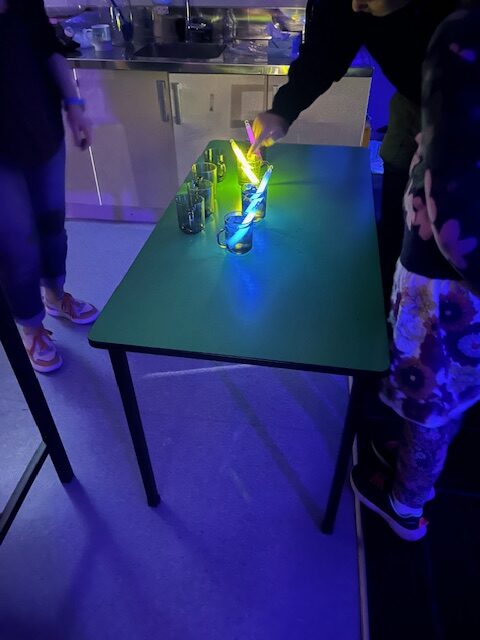
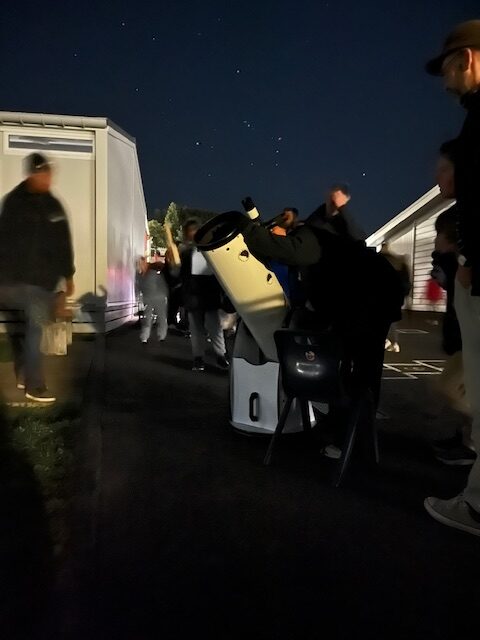
Strengthening Science Through Collaboration: Tawa College & Redwood Primary
By Carol Brieseman
Tawa College and Redwood Primary collaborate on Primary Science Week, building a strong tradition of partnership and shared learning.
Since 2020, the Tawa Kāhui Ako has hosted an annual Science Evening at Tawa College to celebrate Primary Science Week. This event, a collaborative effort led by the Science Department and supported by other contributors, is held in addition to the college’s Open Evening later in the year.
The Science Evening features two sessions where primary students and their whānau register to take part in a variety of science activities. Two science labs are set up for hands-on experiments, while two additional rooms offer kitchen science activities that can be easily replicated at home.
Over the years, older students have taken on a growing role in planning and running the event. It’s especially heartening to see students who once attended as children now returning as organisers and mentors. The Tawa College Science Department generously volunteers their time, alongside a few primary teachers from the Kāhui Ako, to support the kitchen science sessions.
This Science Evening has become a highlight of the Tawa Kāhui Ako calendar, drawing over 400 attendees each year and creating a vibrant, community-focused celebration of science.
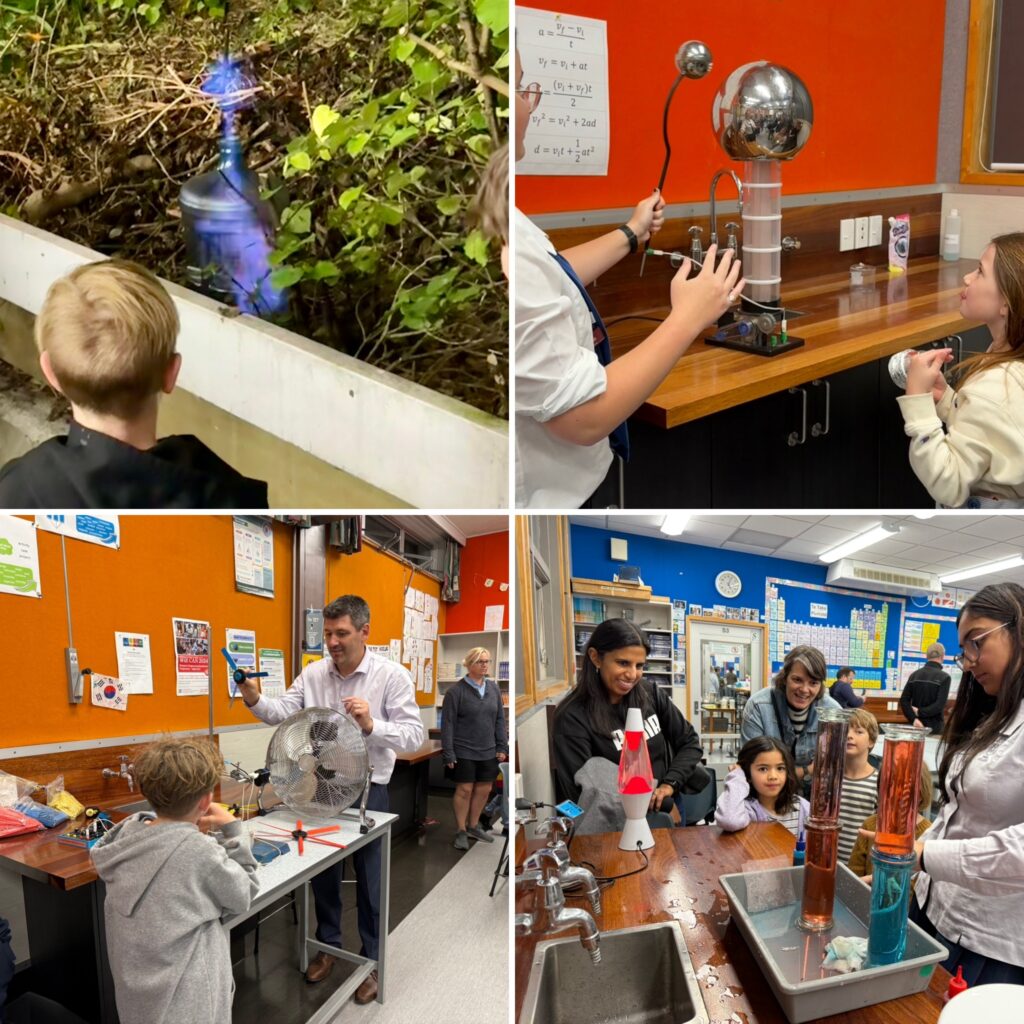
House of Science Primary Science Week Competition
House of Science also ran a nationwide competition for schools called Look Closer: The Magnification Challenge. Classes were challenged to identify six mysterious magnified objects, captured by the HOS team using digital microscopes. There was even a bonus mystery object for those looking for an extra challenge.
This fun and engaging competition was open to any school that wished to participate, encouraging students to sharpen their observation skills and think scientifically about the everyday world around them.
Chris Duggan: Champion of Primary Science
Recently, Chris Duggan, CEO and founder of House of Science, was awarded a New Zealand Order of Merit for her outstanding service to science education. A former NZASE president (2016–2017), Chris left her role as Head of Science in 2013 to start a charity focused on supporting primary science education.
Chris recognised that while excellent professional development opportunities existed , such as Sir Paul Callaghan and the Science Teaching and Learning Programme, many small primary schools struggled with access to science resources. Her solution was to create a shared, community-based resource hub, providing schools with hands-on science kits and lessons they could use in the classroom.
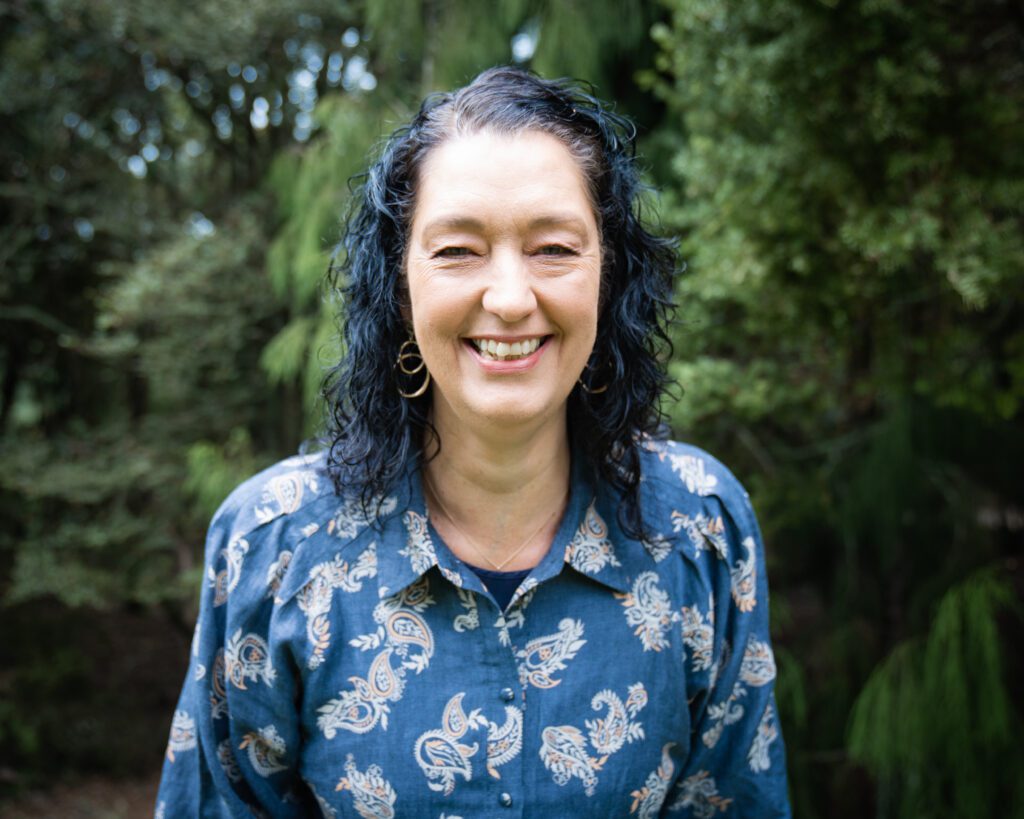
She is especially proud that all House of Science kits are bilingual, ensuring accessibility for all students in Aotearoa. Chris says the organisation’s vision is simple but powerful: “Science in every classroom, every week.”
With over 40,000 students using the kits every fortnight, the impact is clear. These resources are not only fun and engaging, but they also promote critical thinking, inquiry, and open-ended exploration. Students aren’t just following recipes—they’re learning to think like scientists.
Chris is excited about the future, noting how eager young learners are to engage with science from as early as age eight. She believes this early exposure can transform students’ experiences in high school and beyond.
Get Involved and Connect with Primary Teachers
NZAPSE is a subcommittee of the New Zealand Association of Science Educators. Membership is free for primary and intermediate schools, and teachers are encouraged to join the community to have their voices heard and to access support for science in their schools.
Looking Ahead to 2026
If you’d like to get involved in Primary Science Week 2026—whether to contribute, seek support, or share your ideas—we’d love to hear from you.
Perhaps you have suggestions for next year’s theme, need help getting started, are facing challenges integrating certain science topics, or have great practice you’d like to share. Whatever your interest, we encourage you to connect with us.
Acknowledgements
We would like to recognise all the organisations and individuals who helped make Primary Science Week 2025 possible and offer support to teachers across Aotearoa.
Science Learning Hub, Science Alive, House of Science, New Zealand Association of Science Educators, New Zealand Association of Primary Educators, Learnwell, Delta Education and Ben Kennedy (University of Canterbury).
Participating individuals and schools: Andrew Stuart (Te Papa), Antony Gomez (Wellington Astronomical Society), John Rowe, Nicola Webb, Redwood Primary, Tawa Kahui Ako, Otumoetai Primary, St Bernadette's Primary, Mt Eden Normal, St Joseph's School (Hawera), Papatoetoe West, Waimate High School, Panmure District, Kirkwood School, Silverstream, Onehunga Primary, Stanley Avenue School, Yaldhurst School, Home School, Bankwood School, Te Totara Primary, Cocklebay School, Newtown School, Hoonhay School and all the other schools not listed who got involved.
Special mention to: Sandy Jackson, John Marsh, Carol Brieseman and Steven Sexton for their long-term on-going support of primary science.

